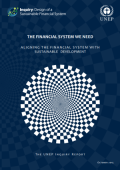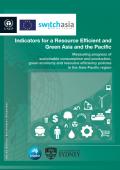Eco-innovation globally emerged as an effort to implement sustainable development. States and firms established and implemented policies and strategies for eco-innovation as one route to achieving sustainable development. Eco-innovation has been facilitated in developed countries, specifically OECD members and European countries, through action plans. Recently, eco-innovation policies have emerged in developing countries. Thus, this study analyzes eco-innovation policies in Asian countries. Policies related to eco-innovation in 17 Asian countries were investigated using policy instrument categories. National policies for eco-innovation were interpreted and compared with development stage classifications. The results indicate that there are similar and different policy approaches to eco-innovation in Asian countries. Given the balance between a technology push (supply side) and a market pull (demand side) in policy instruments for eco-innovation, 17 countries were identified by four categories: leaders, followers, loungers, and laggards. The results provide insight for designing national strategies for eco-innovation in Asia’s developing countries.


Natural resources are the foundation of economic development. This report reveals the patterns and the evolution of natural resource use with 118 indicators in 26 countries of the Asia and the Pacific region over the last 40 years. The analysis shows that resource use in the region is both inefficient and unsustainable. The Asia-Pacific region will not be able to base its future economic growth on declining costs of natural resources as was possible during most of the twentieth century. An increasing reliance on resources from abroad and volatility in the global resource markets will pose challenges to the economic resilience of countries in the region. In this new economic context resource efficiency and decoupling of economic growth and resource use will be fundamental to the economic success of the region. The knowledge generated by this report helps to improve the understanding of the natural resource use and emissions consequences of economic growth in Asia and the Pacific to support policy formulation, monitoring and policy evaluation in the countries of the region.
Green Banking is any form of banking from which the country and nation gets environmental benefits. A conventional bank becomes a green bank by directing its core operations towards the betterment of the environment. Green Banking has become a buzz word in today’s banking world. It means developing inclusive banking strategies which will ensure substantial economic development and promoting environmental-friendly practices as well. This paper focuses on the Green Banking activities of the commercial banks of Bangladesh and we also tried to reason why this policy was adopted and make a comparison among the green banking practices of the commercial banks as well. The policy guidelines will also be focused. The regulations regarding Green Banking are also discussed.
